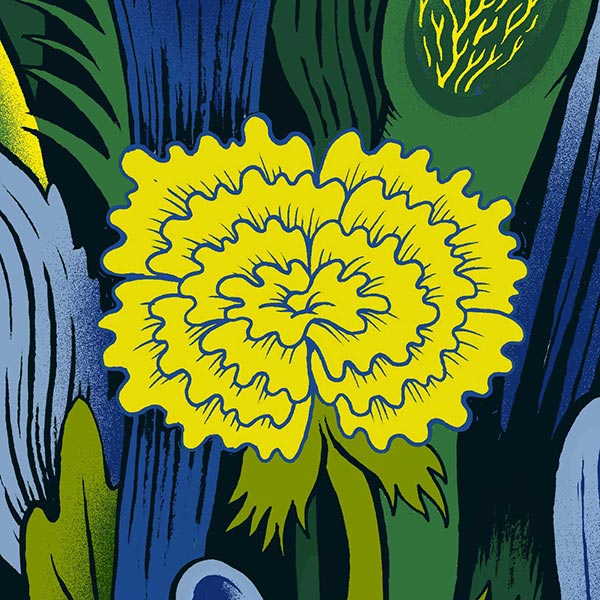This month we’ve been particularly interested in the mind and brain – with articles on therapy methods, psychosomatic illness, and Alzheimer’s. We’ve also been reading articles following our interests in tools for thought, global catastrophic risks, and the workings of the philanthropic sector.
Curing Alzheimer’s by Investing in Aging Research
by Eli Dourado and Joanne Peng
The US Congress allocates billions of dollars each year to Alzheimer’s research but this isn’t paying off in successful treatments. The authors suggest that it would be better to fund fundamental research in the biology of ageing. This would lead to better approaches to Alzheimer’s and to other diseases of aging.
Related: The maddening saga of how an Alzheimer’s ‘cabal’ thwarted progress toward a cure for decades
How I Attained Persistent Self-Love, or, I Demand Deep Okayness For Everyone
by Sasha Chapin
The author describes his journey towards feeling a sense of persistent self-love he calls “Deep Okayness” which is “the total banishment of self-loathing”. As well as describing the methods he used, he argues that current thinking around mental health is too limited as it assumes that it isn’t possible to get to very high levels of persistent happiness. He also suggests that the tools used in mainstream mental health are not the most powerful tools we have available.
Related: The author’s other writing on his journey Stranded on the Space Mountains of Self-Loathing and Two Solo MDMA Trips Totally Ended My Self-Loathing.
A Primer on Memory Reconsolidation and its psychotherapeutic use as a core process of profound change
by Bruce Ecker, Robin Ticic and Laurel Hulley
Therapists face the challenge that their clients often have deep-rooted nonconscious emotional learnings that drive their suffering. This article describes a process that therapists can use to help clients unlearn these learnings, gives a case study example, and summarises the neuroscience research that underpins the method. They argue that these techniques can lead to a permanent cessation of people’s symptoms.
Related: Memory Reconsolidation: Key To Transformational Change in Psychotherapy – a talk which covers similar ideas to the article.
Götz Bachmann’s Ethnographic Research on Dynamicland
by Christoph Labacher
This post summarises the findings of ethnographer Götz Bachmann, who embedded himself with the secretive Dynamic Medium Group, run by engineer and designer Bret Victor. The research group has a vision of computing that seeks to build on the legacy of foundational computer research from Doug Englebart and Xerox Parc. It has developed a project called Dynamicland, which is a “communal computer” that you interact with through physical objects. Bachmann got to observe their internal dynamics, including their prototyping process and internal conflicts over strategy.
Related: The “Next Big Thing” is a Room, which describes Dynamicland.
‘You think I’m mad?’ – the truth about psychosomatic illness
by Suzanne O’Sullivan
This is an extract from O’Sullivan’s book on psychosomatic disorders, based on her experience as a neurologist. It describes three patients she saw with psychosomatic conditions – someone who went blind, someone who couldn’t open her hand, and someone who couldn’t walk. She describes how she diagnosed each of them and the process of treatment, including the challenges along the way.
How Nonprofits Helped Fuel the Opioid Crisis
by Jim Rendon
The article describes the links between pharmaceutical companies that make opioids and patients’ and physicians’ advocacy groups. It argues that pharmaceutical companies saw nonprofits as an important part of their strategy and that nonprofits funded by them downplayed the risks of opioids.
Related: Two articles on the consequences of the reaction to the opioid crisis for people with chronic pain: A Drug Addiction Risk Algorithm and Its Grim Toll on Chronic Pain Sufferers and The Unseen Victims of the Opioid Crisis Are Starting to Rebel.
Concrete Biosecurity Projects (some of which could be big)
by Andrew Snyder-Beattie and Ethan Alley
A list of projects that the authors see as critical parts of biosecurity infrastructure for reducing catastrophic biorisk. This includes an early detection centre, improved PPE, and strengthening the biological weapons convention.
Related: Two overview articles on biorisks by one of the authors: Human Agency and Global Catastrophic Biorisks and Existential Risk and Cost-Effective Biosecurity.
ACX Grants Results
by Scott Alexander
Blogger and psychiatrist Scott Alexander created a mini-grant scheme to give away $250,000 with a minimum of paperwork, using an effective altruist framework. Projects that got grants include: a campaign for approval voting in Seattle, creating software to automate parts of the FDA approval process, and work to develop a next-generation antiparasitic drug.
Related: Another blogger, computer scientist Scott Aaronson, announces a grants programme.
Thanks for reading!
We’re always looking for interesting reading materials so get in touch if you have any to share.

